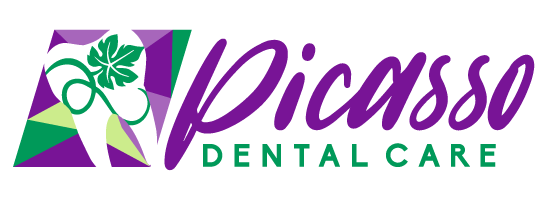Toothache Diagnosis & Treatment
Temecula, CA
Toothache Diagnosis & Treatment provided by Dr. Vinh Le
and Dr. Quang Le
in Temecula, CA at Picasso Dental Care
 Toothaches are a common and often painful ailment that many experience at some point in their lives. They can range from mild discomfort to severe pain, and various factors can cause them. Understanding the causes, symptoms, and potential toothache treatments is essential for managing and alleviating this discomfort. Toothaches are a common and often painful ailment that many experience at some point in their lives. They can range from mild discomfort to severe pain, and various factors can cause them. Understanding the causes, symptoms, and potential toothache treatments is essential for managing and alleviating this discomfort.
What is a Toothache?
A toothache is any pain or discomfort from a tooth or the surrounding structures, such as the gums or jawbone. It can vary in intensity and duration and might be accompanied by other symptoms such as swelling, sensitivity to hot or cold foods and drinks, or a foul taste in the mouth. Toothaches can occur suddenly or develop gradually over time, affecting one or more teeth. This is why our Temecula dentists recommend regular dental cleaning to catch potential problems before they become painful.
Symptoms of a Toothache
| • |
Persistent or intermittent pain in the affected tooth or teeth.
|
| • |
Sensitivity to hot, cold, or sweet foods and beverages.
|
| • |
Swelling or tenderness in the gums surrounding the affected tooth.
|
| • |
Pain or difficulty when biting or chewing.
|
| • |
Fever or swelling of the jaw in cases of infection. |
Causes of Toothaches
Several factors can contribute to the development of a toothache, including:
| • |
Tooth Decay: Acids in the mouth produced by bacteria erode the enamel, leading to decay and eventual toothache.
|
| • |
Gum Disease: This can cause the gums to recede, exposing the roots of the teeth and leading to pain and sensitivity.
|
| • |
Tooth Fractures: Trauma or injury to the tooth, such as a crack or fracture, can result in a toothache.
|
| • |
Abscessed Tooth: This can cause severe, throbbing pain, and may lead to swelling and pus formation.
|
| • |
Impacted Wisdom Teeth: This can lead to pain, swelling, and infection in the surrounding tissue.
|
| • |
Bruxism: Grinding or clenching the teeth, often during sleep, can put excessive pressure on the teeth and jaw muscles, leading to toothaches, headaches, and jaw pain.
|
| • |
Dental Procedures: Toothaches can also occur as a result of dental procedures such as fillings, crowns, or root canals. |
Toothache Diagnosis
Diagnosing a toothache involves a physical dental examination and sometimes additional diagnostic tests.
Patient History
The first step in diagnosing a toothache is to gather information about the patient's symptoms. The dentist will ask questions to understand the nature of the pain, its duration, severity, and any factors that exacerbate or alleviate it.
Physical Examination
Next, the dentist will thoroughly examine the affected tooth and surrounding oral tissues. They will visually inspect the teeth and gums for signs of decay, inflammation, or injury.
Diagnostic Tests
In some cases, additional diagnostic tests may be necessary to pinpoint the cause of the toothache. These tests can include:
| • |
X-Rays: Dental X-rays can reveal hidden cavities and infections.
|
| • |
Pulp Vitality Tests: These tests assess the health of the tooth's pulp. Common tests include temperature sensitivity tests and electric pulp testing.
|
| • |
Percussion and Bite Tests: These tests involve tapping on the tooth or asking the patient to bite down on a specific object to determine if there's any pain or discomfort. |
Treatment Options
Once the cause of the toothache has been identified, the dentist will recommend appropriate treatment options to alleviate pain and address the underlying issue. Treatment may include:
| • |
Fillings: If the toothache is due to a cavity or dental decay, the dentist may recommend a cavity filling to restore the damaged tooth structure. Fillings are typically made of tooth-colored composite resin or amalgam, depending on the location and extent of the decay.
|
| • |
Root Canal Therapy: If the toothache is caused by infection or inflammation of the dental pulp (the tooth's innermost layer), root canal therapy may be necessary. During this procedure, the infected pulp is removed, the root canal is cleaned and disinfected, and the tooth is sealed with a filling or crown to prevent further infection.
|
| • |
Extraction: In cases where a tooth is severely damaged, decayed beyond repair, or impacted, dental extraction may be the only viable option. The dentist will carefully remove the affected tooth to alleviate pain and prevent complications.
|
| • |
Antibiotics: If the toothache is accompanied by signs of infection, such as swelling, pus drainage, or fever, the dentist may prescribe antibiotics for emergency dental care to eliminate the infection before performing any definitive dental treatment.
|
| • |
Pain Management: In the meantime, the dentist may recommend over-the-counter pain meds such as ibuprofen or acetaminophen for toothache relief. Avoid placing aspirin directly on the gums or tooth, as it can cause chemical burns.
|
| • |
Home Care Instructions: Depending on the specific diagnosis and treatment provided, the dentist will offer instructions for home care to promote healing and prevent further complications. This may include proper oral hygiene practices, dietary modifications, and follow-up appointments for monitoring and maintenance.
|
| • |
Tooth Sensitivity Treatment: Fluoride helps strengthen tooth enamel and can reduce sensitivity by blocking the tiny tubules in the dentin. Dentists may apply fluoride varnish or gel to the sensitive areas during a dental visit or recommend fluoride-containing mouthwash for daily use. |
Components of Oral Hygiene Education
| • |
Brushing Technique: Brush at least twice daily with fluoride toothpaste using gentle, circular motions to clean all tooth surfaces and the gum line.
|
| • |
Flossing: Flossing is essential for removing plaque and food particles from between teeth and below the gumline, where a toothbrush cannot reach.
|
| • |
Nutrition and Diet: Limiting sugary snacks and beverages can help prevent tooth decay, while consuming foods rich in calcium, vitamins, and minerals can support healthy teeth and gums.
|
| • |
Use of Dental Products: Providing guidance on selecting appropriate dental products, such as toothbrushes, toothpaste, mouthwash, and dental floss, helps people make informed choices that align with their oral health needs. |
Toothaches can be incredibly uncomfortable and disruptive, often affecting various aspects of daily life. Ignoring tooth pain can lead to more severe complications, including infections and tooth loss. It's essential to address toothaches promptly by consulting with a dentist to identify the underlying cause and receive appropriate treatment.
Schedule a Check-up in Temecula Today!
Picasso Dental Care understands how debilitating tooth pain can be, affecting everything from your ability to eat and sleep to going about your daily life chores.Dr. Vinh Le and Dr. Quang Le have years of experience and is highly skilled in diagnosing and treating toothaches. You can trust that you are in capable hands when you come to us for help. To book your appointment, simply call (951) 383-2021 or visit our website. We look forward to helping you smile brighter and live pain-free! |
